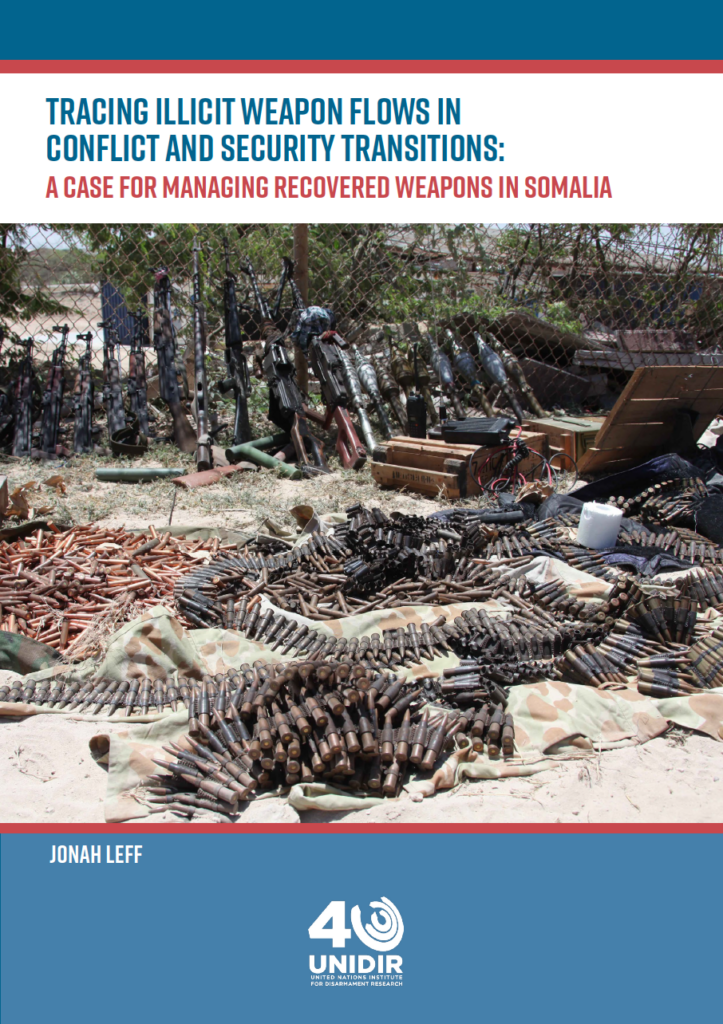International and sub-regional instruments encourage or require States to appropriately manage and trace recovered weapons in order to identify their illicit sources, understand patterns of illicit arms flows, and address diversion resulting from poor controls over international transfers or national stockpiles. However, tracing weapons recovered in situations of armed conflict and security transitions is a challenging undertaking due to insecurity and capacity constraints. In the context of Somalia, the requirement for recording and tracing weapons recovered in security operations is reinforced by the arms embargo to aid the Security Council subsidiary bodies in investigating violations. Somalia’s experience highlights the range of challenges that can be encountered in this respect, but also offers lessons that have relevance and wider application to other sanctions regimes imposed in similar contexts.
Sponsor Organizations: Partner: Somalia, Conflict Armament Research; Donor: Finland
Citation: Jonah Leff (2020) "Tracing Illicit Weapon Flows in Conflict and Security Transitions: A Case for Managing Recovered Weapons in Somalia", UNIDIR, Geneva.
